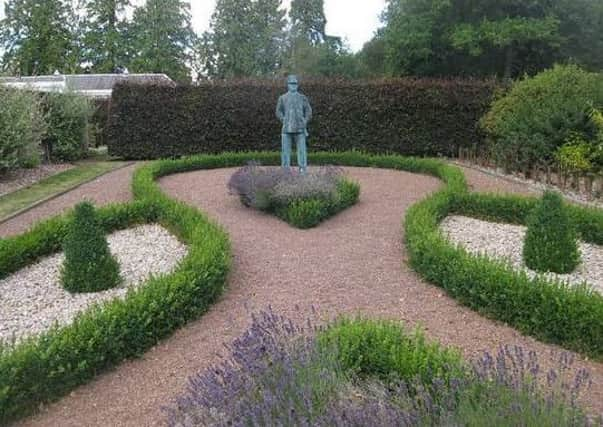Family tribute to war hero’s Dunkirk plan


The Ramsay family are holding a service of commemoration for the 75th anniversary of the evacuation from Dunkirk on Sunday, June 7, at 11.30am at the statue of Admiral Sir Bertram Ramsay in Bughtrig garden.
In May 1940 Germany invaded Holland, Luxembourg and Belgium, advancing towards the French coast and surrounding the allied troops at Normandy - their only escape being the English Channel.
Advertisement
Hide AdAdvertisement
Hide AdA request was sent to Sir Bertram Ramsay, Vice-Admiral, to bring the British army home and he put together Operation Dynamo, commissioning as many craft as he could to rescue thousands of troops who were trapped.
Winston Churchill took over as Prime Minister on May 10, and on May 26, when he told the House that Operation Dynamo had been launched to rescue allied forces cornered by the advancing German army, and he expected about 20,000 to 30,000 troops would be saved.
Helen Minto, writing about the Dunkirk evacuation said: “It was thanks to the valour of the Royal Navy, the Royal Air Force and Sir Bertram’s ingenuity, 338,226 British and French troops were rescued and brought back across the Channel to fight another day.”
Sir Bertram Ramsay was awarded the honour of the KCB for his great achievement from King George V1. Four years later he was to play a major role in the D-Day landings.
Advertisement
Hide AdAdvertisement
Hide AdIn 1944, he was put in charge of the Allied Naval Expeditionary Force for the invasion of France, masterminding Operation Neptune, the largest seaborne invasion in history, pushing back the German troops which led to the liberation of France and contributed to the Allied victory a year later.
Sadly Admiral Ramsay died in a plane crash in France at the beginning of 1945 and for many years after the war he become D-Day’s ‘forgotten man’.
Admiral Ramsay’s family and historians such as Allen Packwood, director of the Churchill Archives Centre, Cambridge, where Ramsay’s D-Day diary, invasion maps, photographs and correspondence are on display, have worked hard to see that his role at the heart of Dunkirk and the D-Day landings is never forgotten.